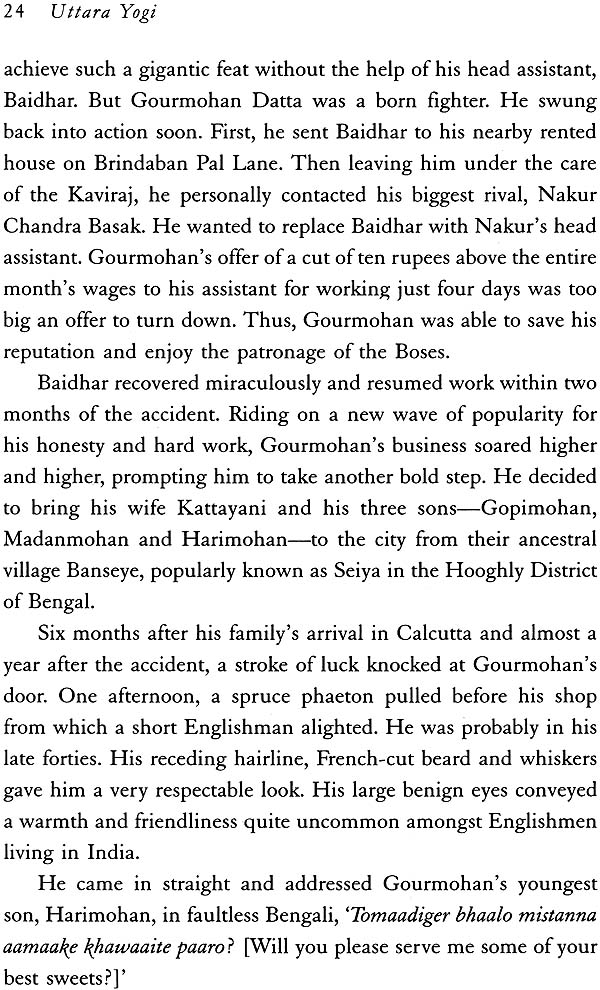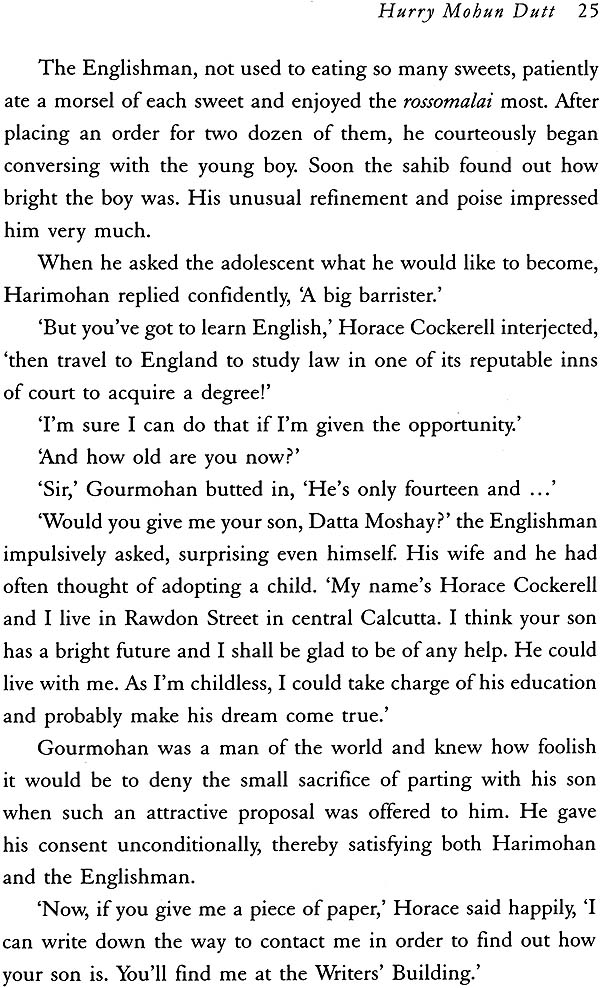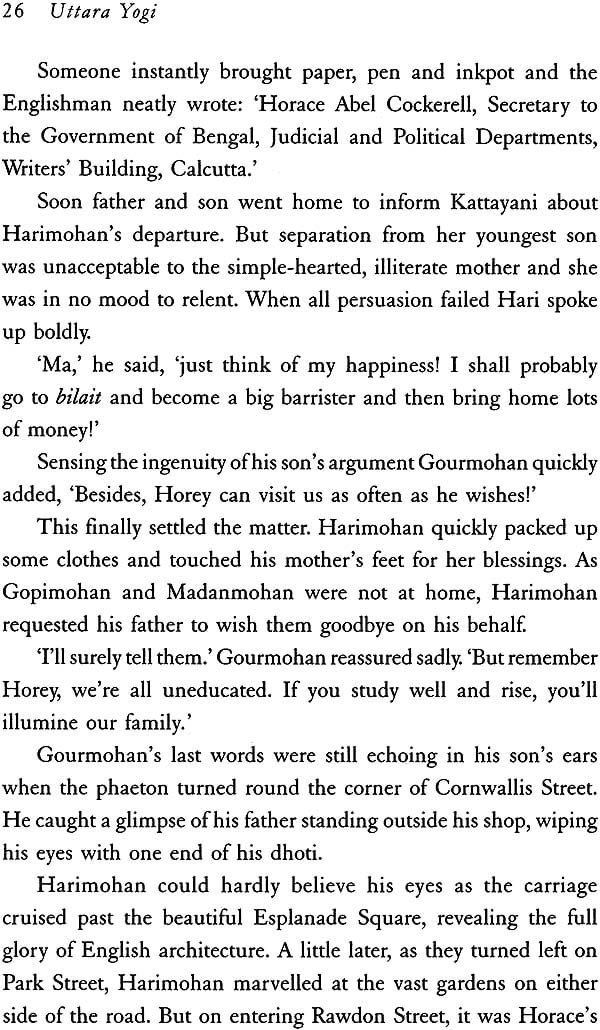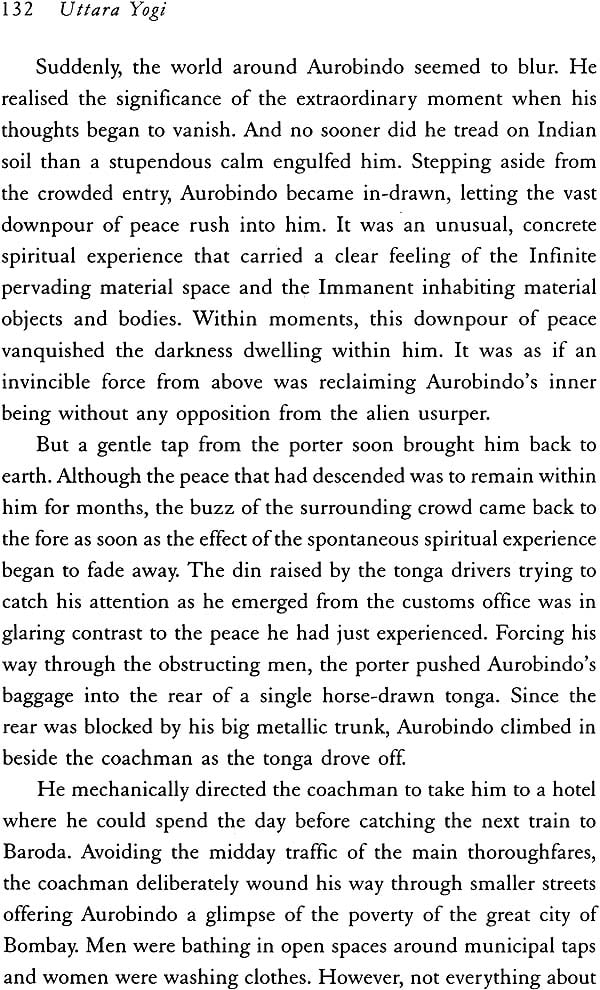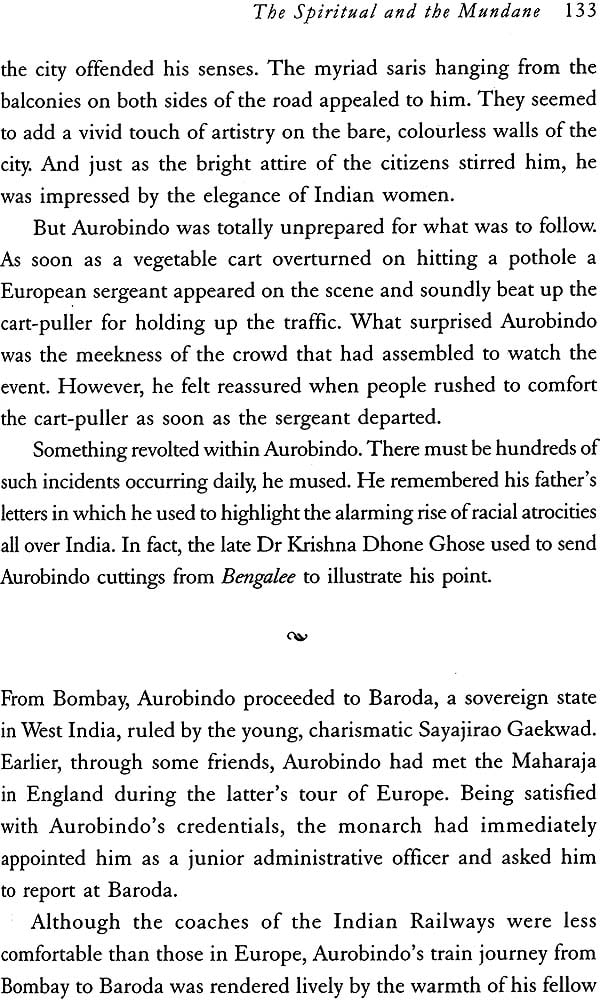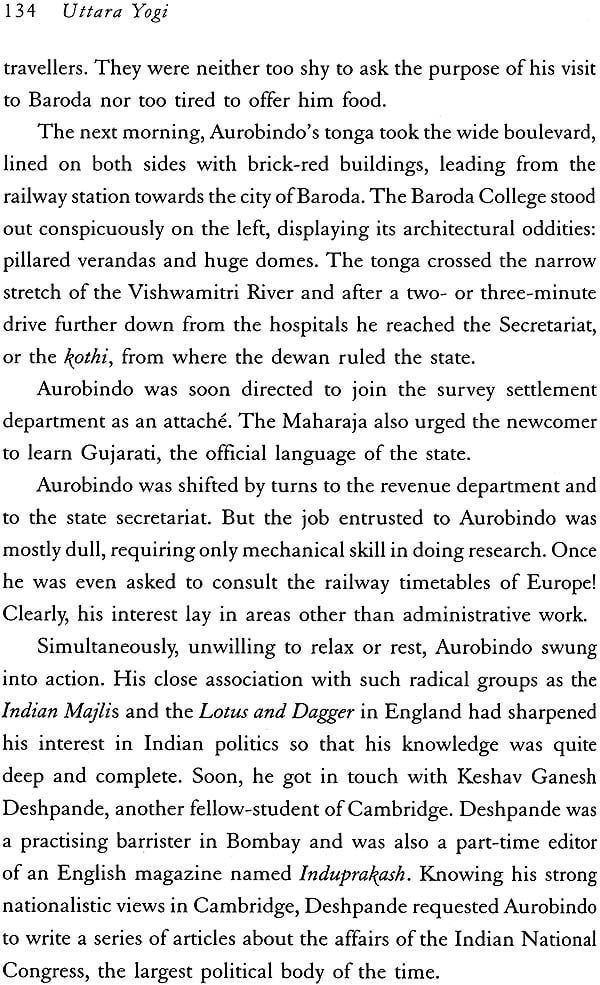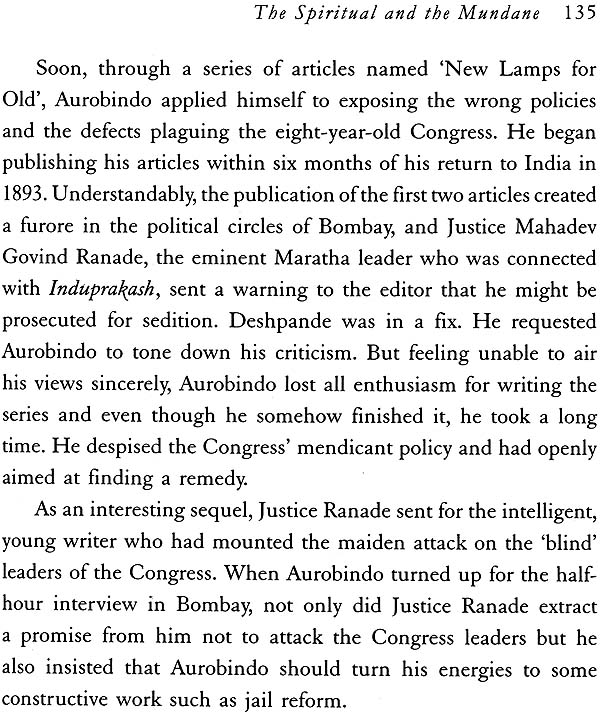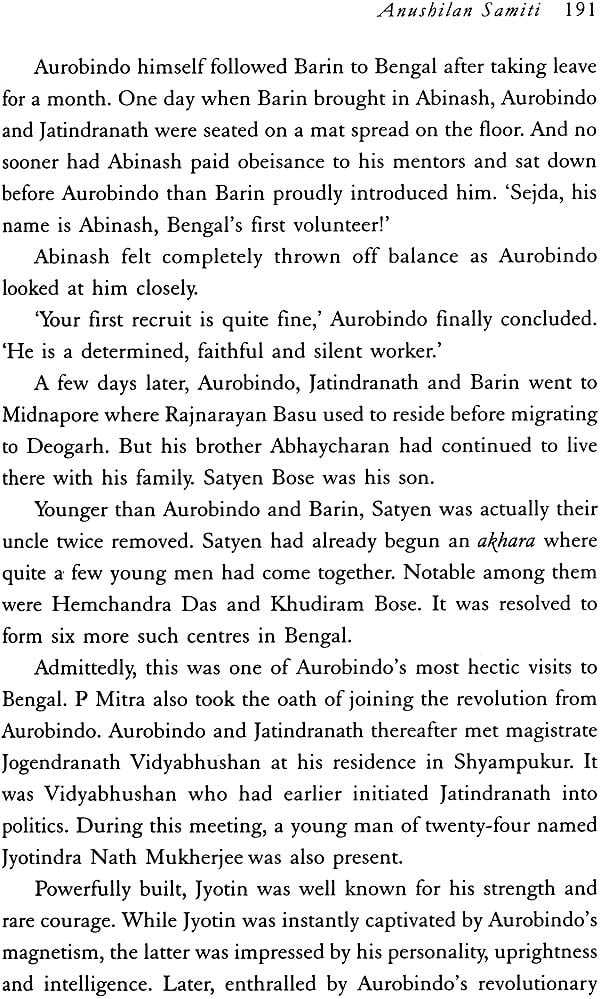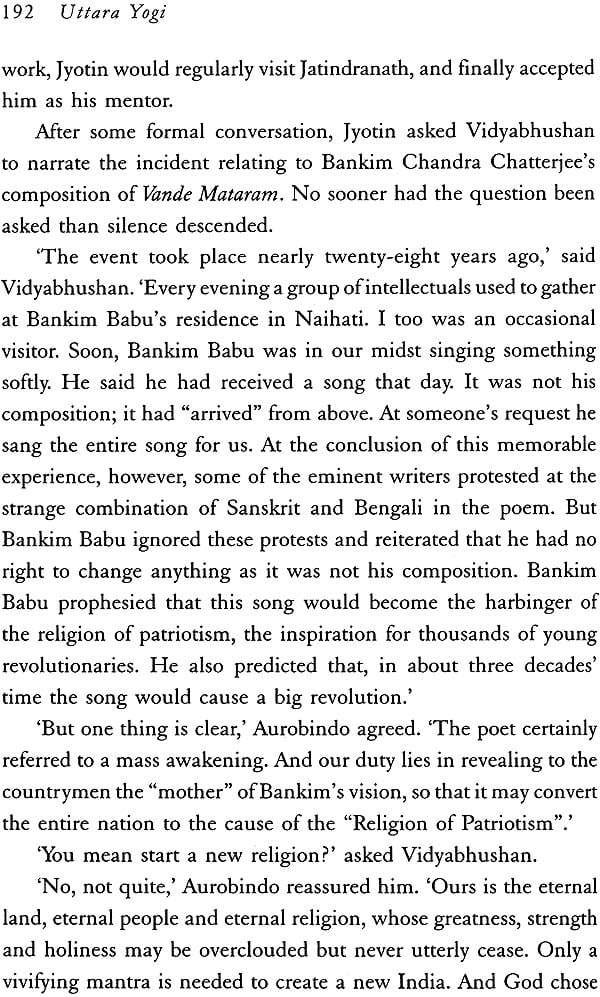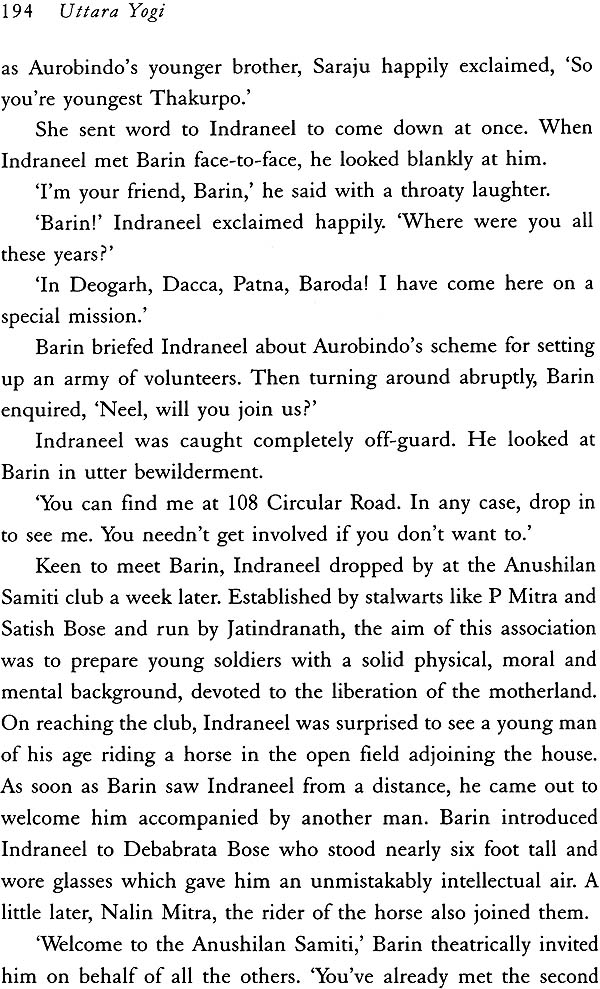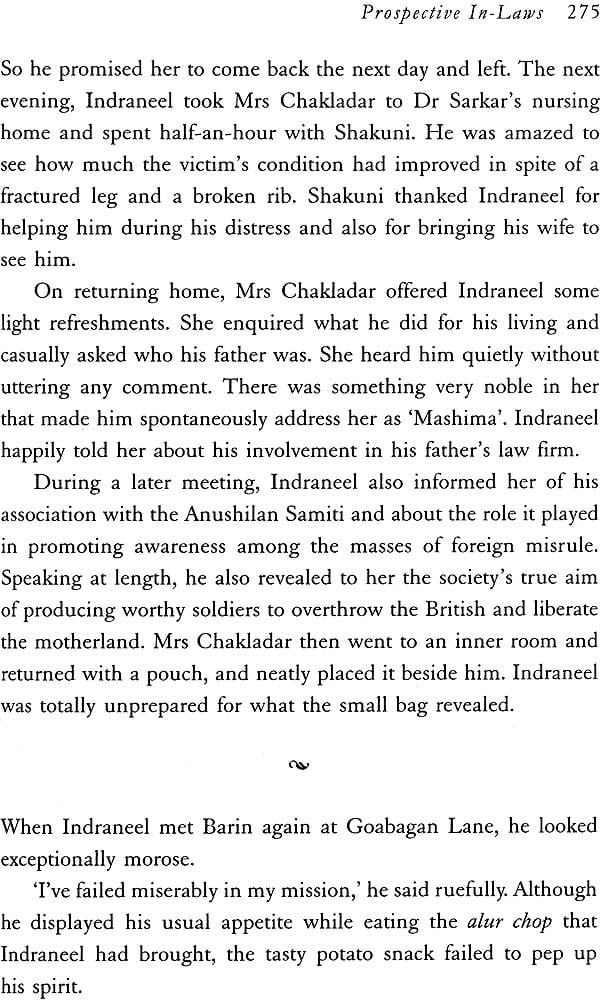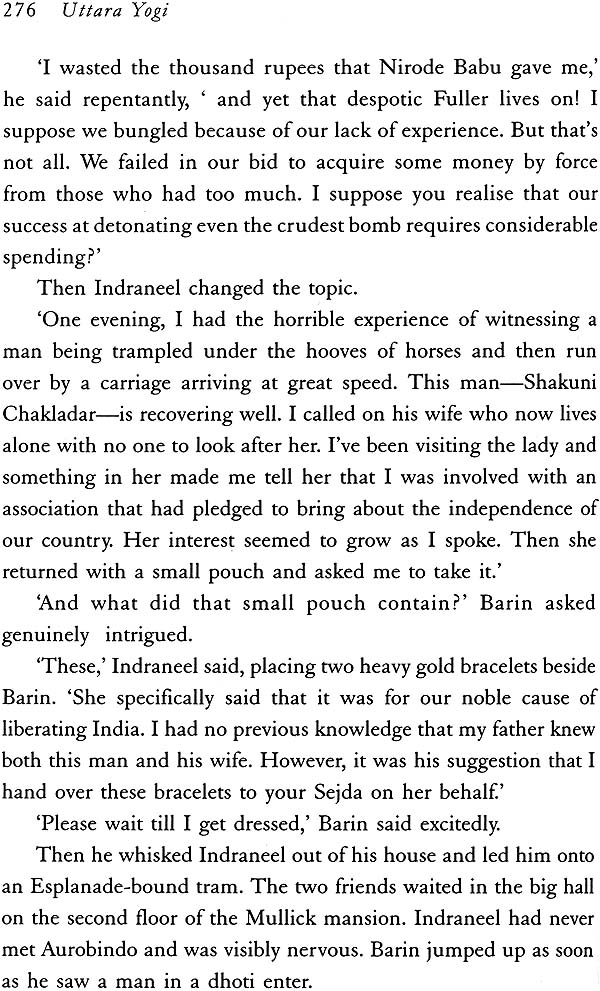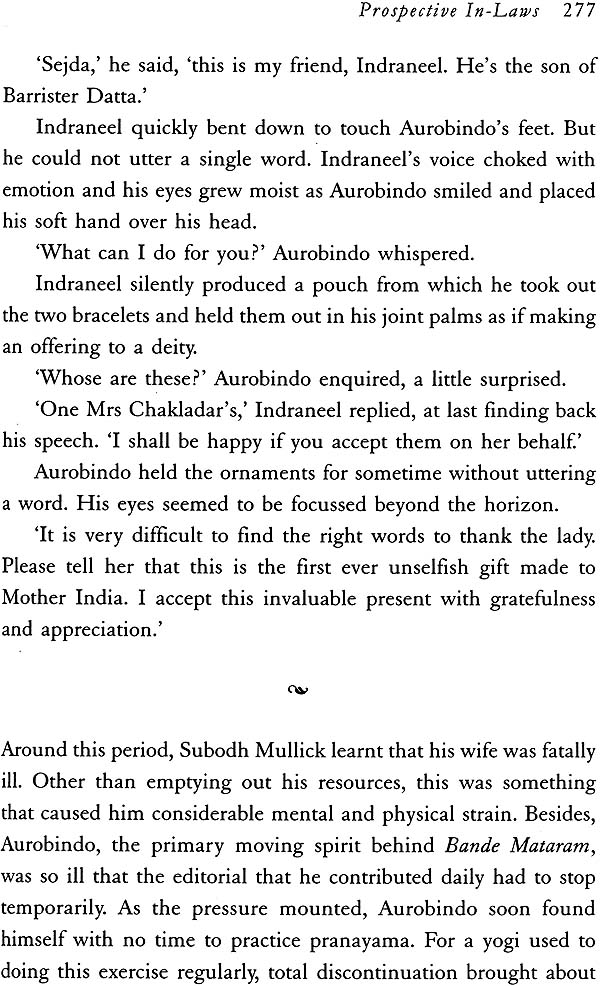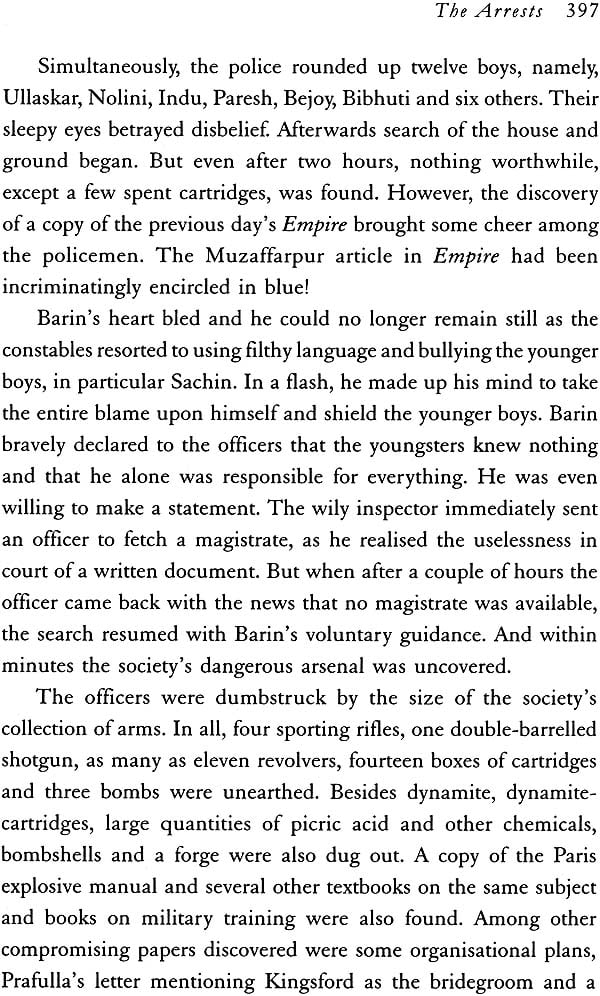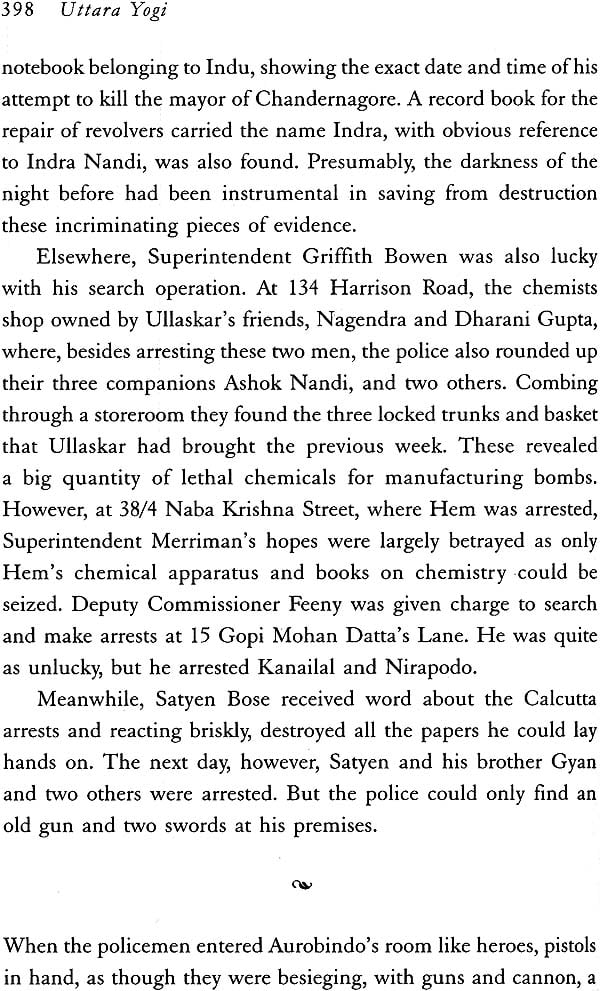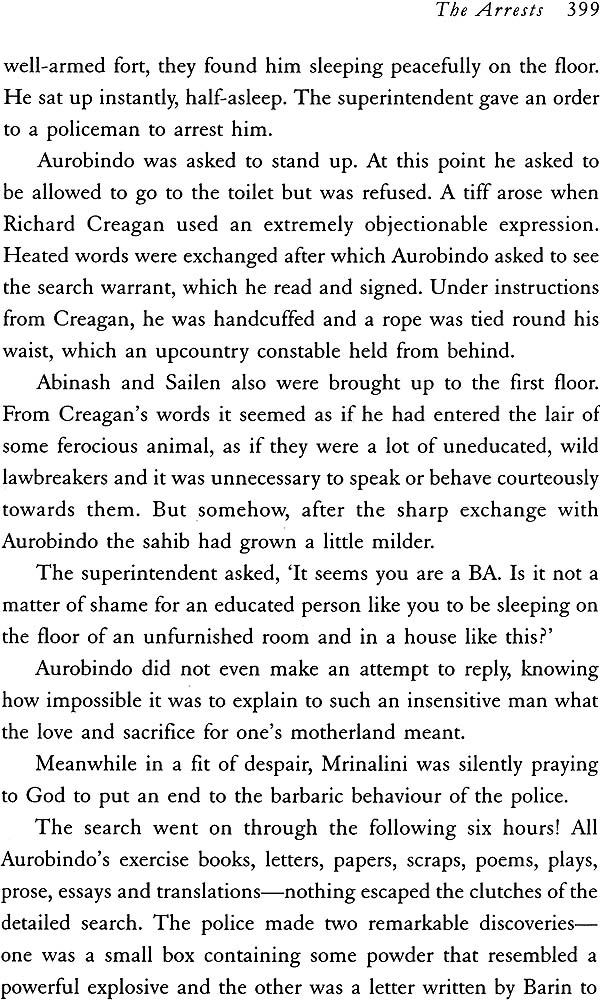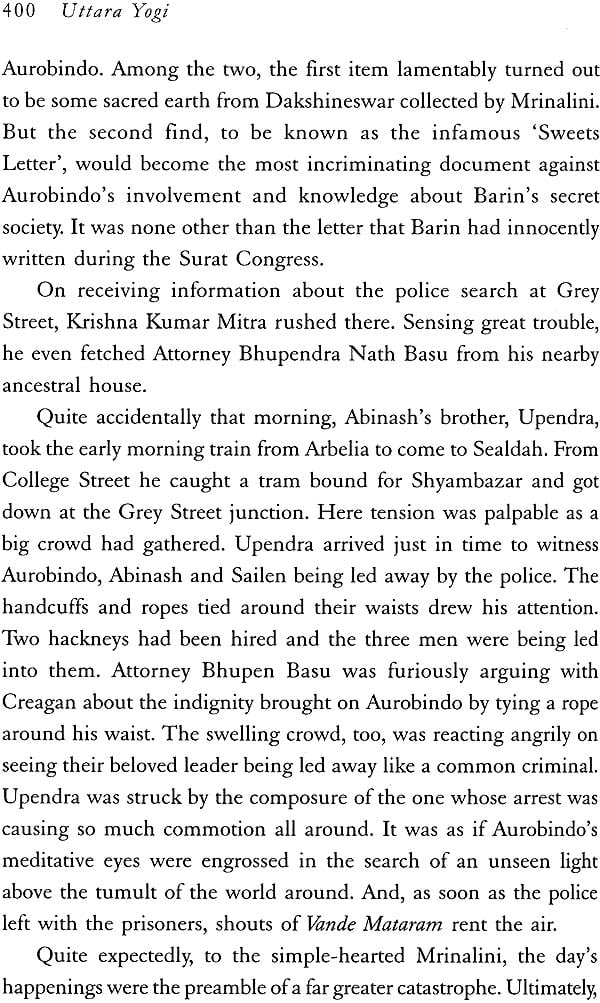
Uttara Yogi: A Novel Based on the Life of Sri Aurobindo
Book Specification
| Item Code: | NAL745 |
| Author: | Arup Mitra |
| Publisher: | Niyogi Books |
| Language: | English |
| Edition: | 2010 |
| ISBN: | 9788189738556 |
| Pages: | 576 |
| Cover: | Hardcover |
| Other Details | 9.0 inch x 6.0 inch |
| Weight | 890 gm |
Book Description
In 1870, the spiritual leader of the Nagai japat, makes a momentous prediction: the Uttara Yogi would settle down in South India. His arrival would presage the liberation of the country from foreign rule and put an end to the era of falsehood. The long vigil for the Uttara Yogi begins.
Having completed his internship the ICS in England, young Aurobindo Ghose returns to India and joins the service of the Maharaja of Baroda. Soon, he chalks out his programme for achieving the independence of India. He popularises the ‘battle cry’ Vande Mataram and initiates the Swadeshi and Boycott movements to thwart the partition of Bengal.
He also strives to put an end to the moderate policies of the Congress by replacing it with nationalism. Secretly, he initiates an armed insurrection to overthrow the British by establishing a bomb factory in his ancestral garden house of Muraripukur, exposure of which leads to the infamous Alipore Bomb Trial.
WeII-researched and craftily woven, Uttura Yogi is a remarkable historical novel, taking the reader back to pre-independent India through a tale of patriotism, adventure, love and betrayal, revealing through a multitude of characters episodes and experiences, the true identity of the Uttara Yogi.
Arup Mitra is an artist by profession. He was art instructor at Lycee Francais de Pondichery and presently teaches art at the Sri Aurobindo International Centre of Education, Settled in Puducherry, his keen interest in Sri Aurobindo led him to write this novel.
Uttara Yogi is a work of fiction in which the creation and portrayal of the characters, the plot and the narrative thread are products of the author's imagination. But this does not mean that everything in the novel is fictitious. Much of it is based on available documents, all of which are listed in the bibliography. Without this storehouse of information-books, letters, newspaper reports, government and police records, career records, biographies, old photographs, city maps and street directories, railway timetables, maritime records, calendars and unpublished manuscripts-this work would not have been possible.
I have also provided a list of historical personalities as well as a glossary of Indian terms and names used in the novel for the benefit of the readers.
I have recounted the story of Sri Aurobindo's life in the form of a novel. Harimohan Datta, whom I have created in a given set of circumstances, meets Sri Aurobindo at different times and places as both their lives happen to come together. Harimohan's narrative carries the reader back to the days of pre-independent India and recreates the mood of the nationalist movement.
As for the historical characters, most of the time, I have referred to their respective published works-though the words, as spoken by them in the narrative, do not always correspond to the actual context in which they were uttered. In the same light, some of the characters in this story say things of which there are no records, but which could have been said by them, if we consider their later writings. Here again, I have taken artistic liberty.
Let me emphasise, however, that there has been no attempt to belittle any historical personality or to cast aspersions on him or her. If, inadvertently, some details are felt to be disparaging, I beg to be pardoned for my unintended error.
Through this fictional work, if I am able to bring to life something of that momentous period in India's history in which the first sparks of national awakening were born, if even some of my readers feel inspired to serve their country more fully, if in their hearts the devotion for Sri Aurobindo has been lit, I would feel that my labour has been richly rewarded.
| Preface | 7 |
| Acknowledgements | 9 |
| A Short History | 11 |
| PART ONE: THE BEGINNING | 15 |
| PART TWO: SEARCH WITHIN | 129 |
| PART THREE: A SPECIAL DESTINY | 221 |
| PART FOUR: THE MAN AND THE MISSION | 347 |
| Bibliography | 566 |
| Glossary | 573 |

